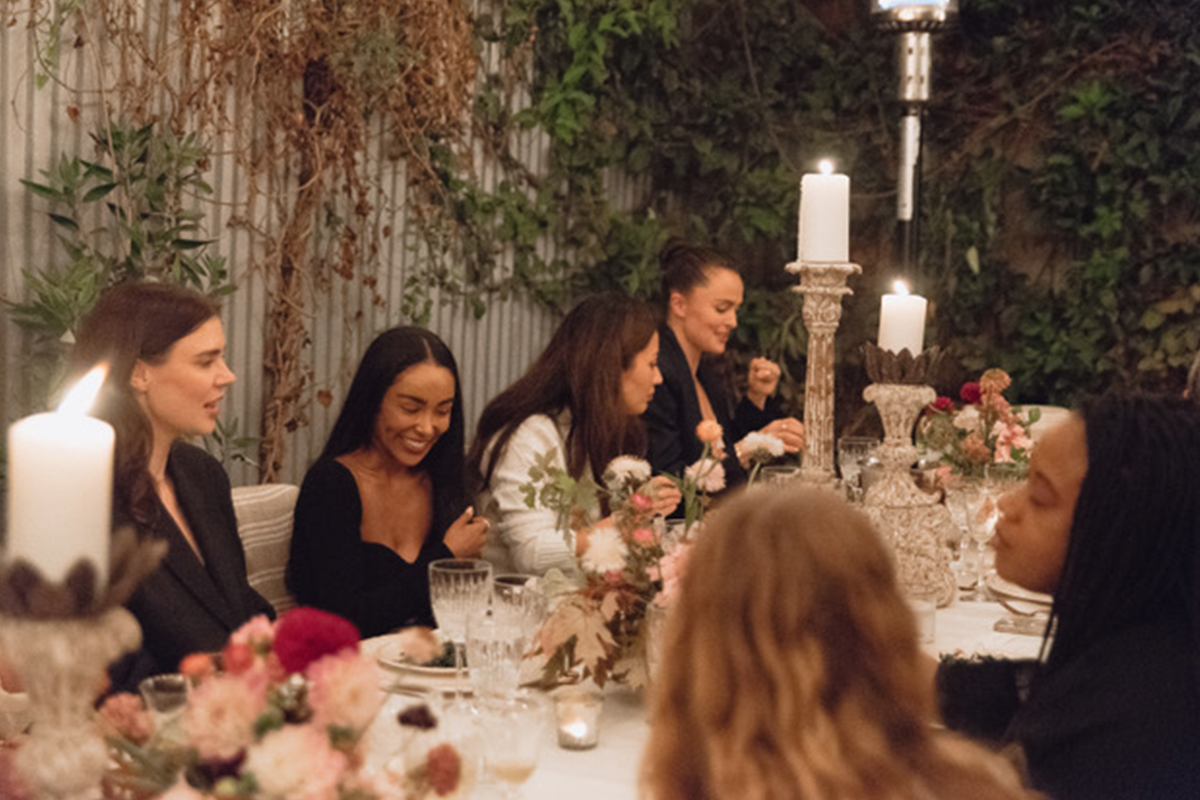
One of La Cura’s intimate supper clubs hosted by Olivia Muniak in Los Angeles
In her first column for LUX, Los Angeles-based chef and entrepreneur Olivia Muniak traces the historical and modern significance of coming together to drink and dine
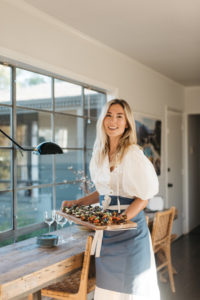
Olivia Muniak
Gathering together to drink and dine has a long, primal tradition as a social glue of humanity. In Roman times, banqueting was an important social ritual involving extravagant menus with multiple courses, luxurious tableware, and diverse forms of entertainment. There were even civic feasts offered for all of the inhabitants of a city, often accommodating large numbers of diners.
Follow LUX on Instagram: luxthemagazine
Of course, food or rather the lack of it has also given rise to revolutions. Marie Antoinette infamously uttered the phrase “Qu’ils mangent de la brioche” (“Let them eat cake”) on hearing that the peasants had no bread during one of the famines in France under the reign of her husband King Louis XVI. While it’s uncertain whether or not Marie Antoinette actually spoke these words, the phrase has acquired symbolic importance as an illustration of the upper classes’ ignorance, and the beginnings of the French Revolution.
If we look at religious holidays and the types of food that have been and continue to be served, we can also find connections with history. Lamb, for example, is served on Easter as a good omen, and is said to represent Christ while on Rosh Hashanah, the Jewish New Year, apples and honey signify hope for future.
All of that is that is to say: food does not influence culture, it mirrors it and provides an important insight into the evolution of humanity. A pivotal point in American culture, for example, was the advent of the TV dinner which represented a huge shift in the archetype of family and our modern world. In the early 1950s, millions of white women entered the work force meaning that mothers were no longer at home to cook elaborate meals and pre-made frozen dinners provided the perfect solution: all you had to do was pop them in the oven, and thirty minutes later the family could be eating a hot supper while enjoying the new national pastime: television.
In Italy, food, drink and socialising go hand in hand. An aperitivo (pre-meal drink) is a cultural ritual, signifying the end of the working day. The Milanese take their aperitivo so seriously that the slang term apericena came about as a description of when drinks spill over into dinner. In Spain and some Latin American countries, sobremesa is the tradition of relaxing at the table after a heavy meal to relax, digest and converse, and in Sweden, it’s considered essential to make time for fika, a short coffee break, every day. We Americans go for all of it: cocktails, fine dining, street food, food trucks, coffee shops. We love a reason to get together with friends and indulge. The point is: humans have an appetite for good food and good company.
In 2019, I founded La Cura, a sustainable catering and event production company, based on that principle, but also because I was yearning for experiences that supported meaningful connection. I had recently moved to Los Angeles from New York and was eager to build a sense of community, and so it began, as a supper club in my backyard. I sold tickets to multi-course, family style meals. The first event was 32 guests, all different ages and from diverse backgrounds, crammed around one table. Guests had to pass platters of food to one another, share bottles of wine and the warmth of these very ordinary gestures created fast bonds between perfect strangers. The best story I heard from one of those events is that two guests (who both randomly ended up getting a ticket because a friend couldn’t go) began a podcast together.
Read more: Shiny Surfaces, Lawsuits & Pink Inflatable Rabbits: In Conversation with Jeff Koons
Over the last year or so, we have been starved of this simple, sensory act of gathering over food and drink. Instead, we met across screens – on Zoom, Facebook and Whatsapp – or hosted the same small circle of friends or family. When it became safe and socially acceptable to gather again, my company was booking a month plus in advance for brand events and dinners centred mainly around intimate dinners, which provided an escape from the ordinary. And this trend is only set to continue with many people hosting their own dinner parties having honed their cooking skills and invested in tableware over the various periods of lockdown. Alongside my company, which curates the menu and the evening, there are many consumer facing tabletop rental companies such as Social Studies which make it easier to throw larger events or themed parties within the comfort of your own home.
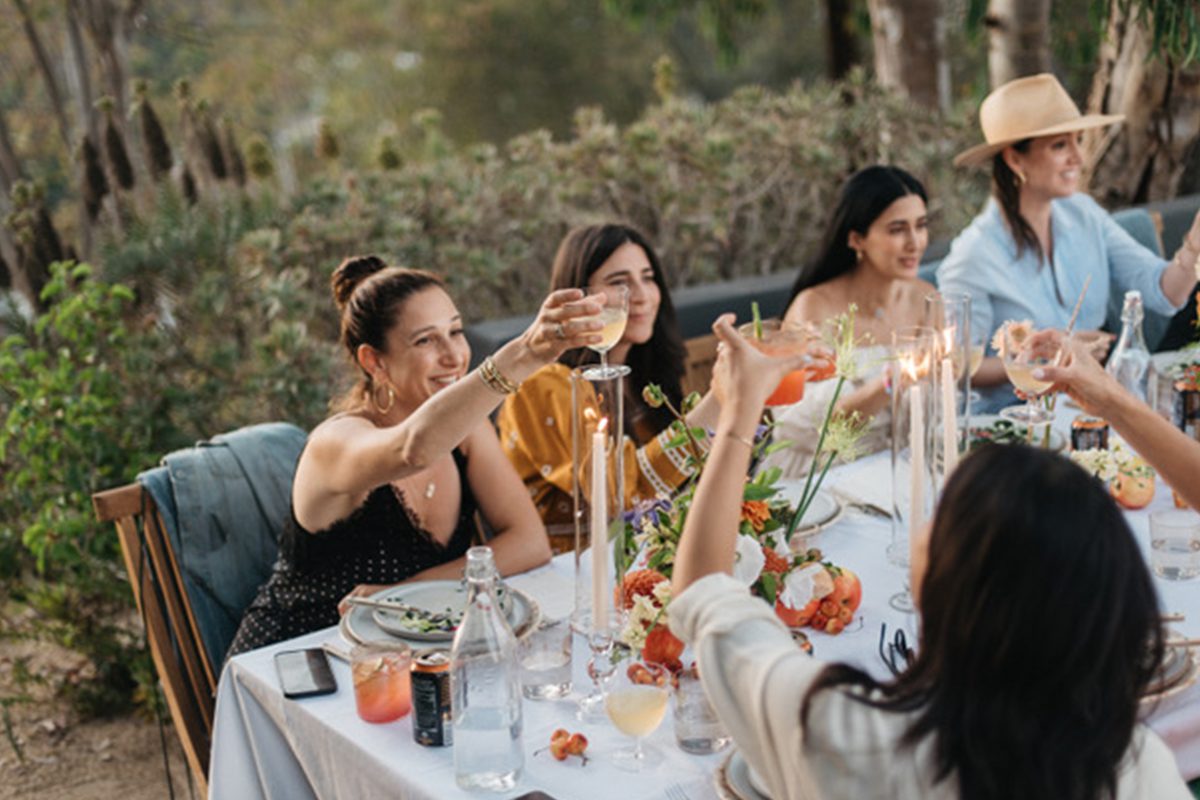
These kinds of social acts are good for us: they break up our days, increase productivity, provide a space for us to unwind, relax and have fun. They add colour and depth to our lives, and now, in the wake of the pandemic, meeting for a drink or meal has become more meaningful than ever. What this time has taught us is that food and drink is what binds us. It connects us to our personal memories, a sense of self, as well as to our cultural histories and traditions. I have a childhood friend, whose mother makes a marble cake for every birthday celebration and every time I see a marble cake, I think of both her birthday and my family’s restaurant, where is also served it by the slice. Wherever I am in the world, it brings me a sense of comfort and nostalgia.
No matter our background or culture, the act of eating and drinking together is something we all share. It’s a basic human need and a communal pleasure. More importantly, in this hard-to-predict time, the ritual of dining and drinking brings a sense of grounding and normality to our lives.
Olivia Muniak is the founder of La Cura, a Los Angeles-based catering and events company. For more information, visit: thisislacura.com



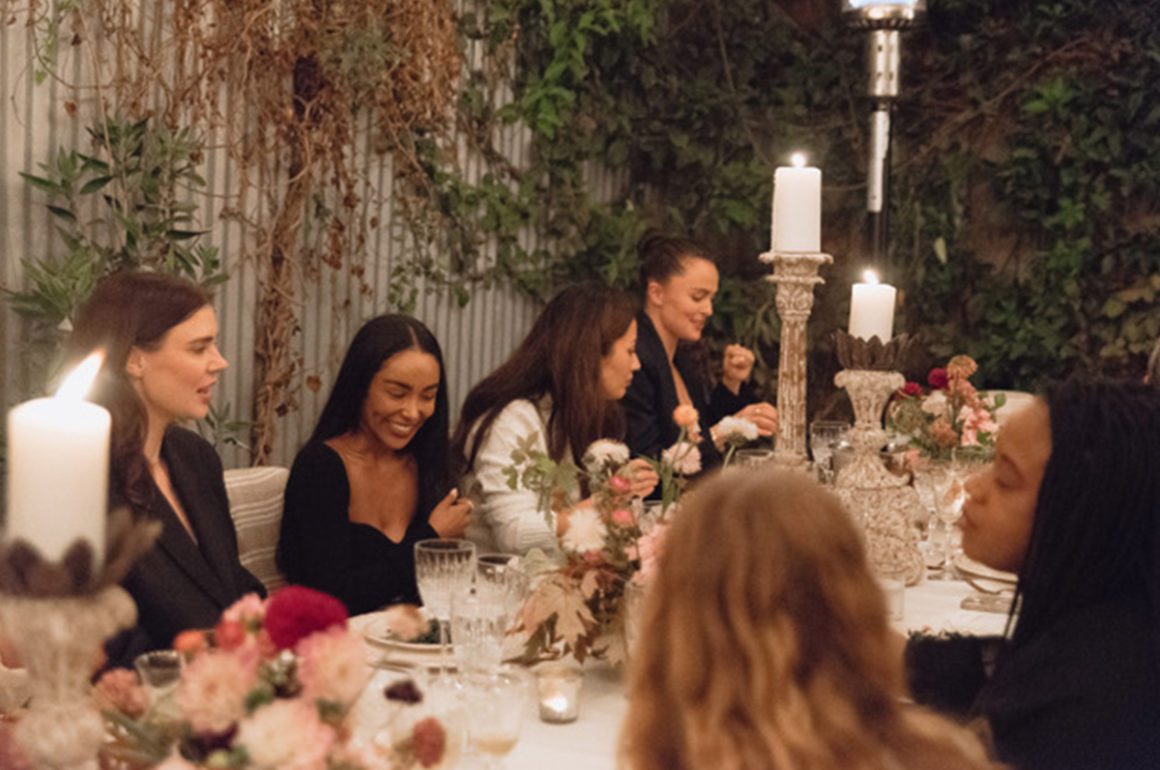


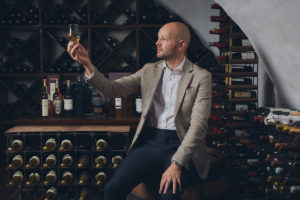
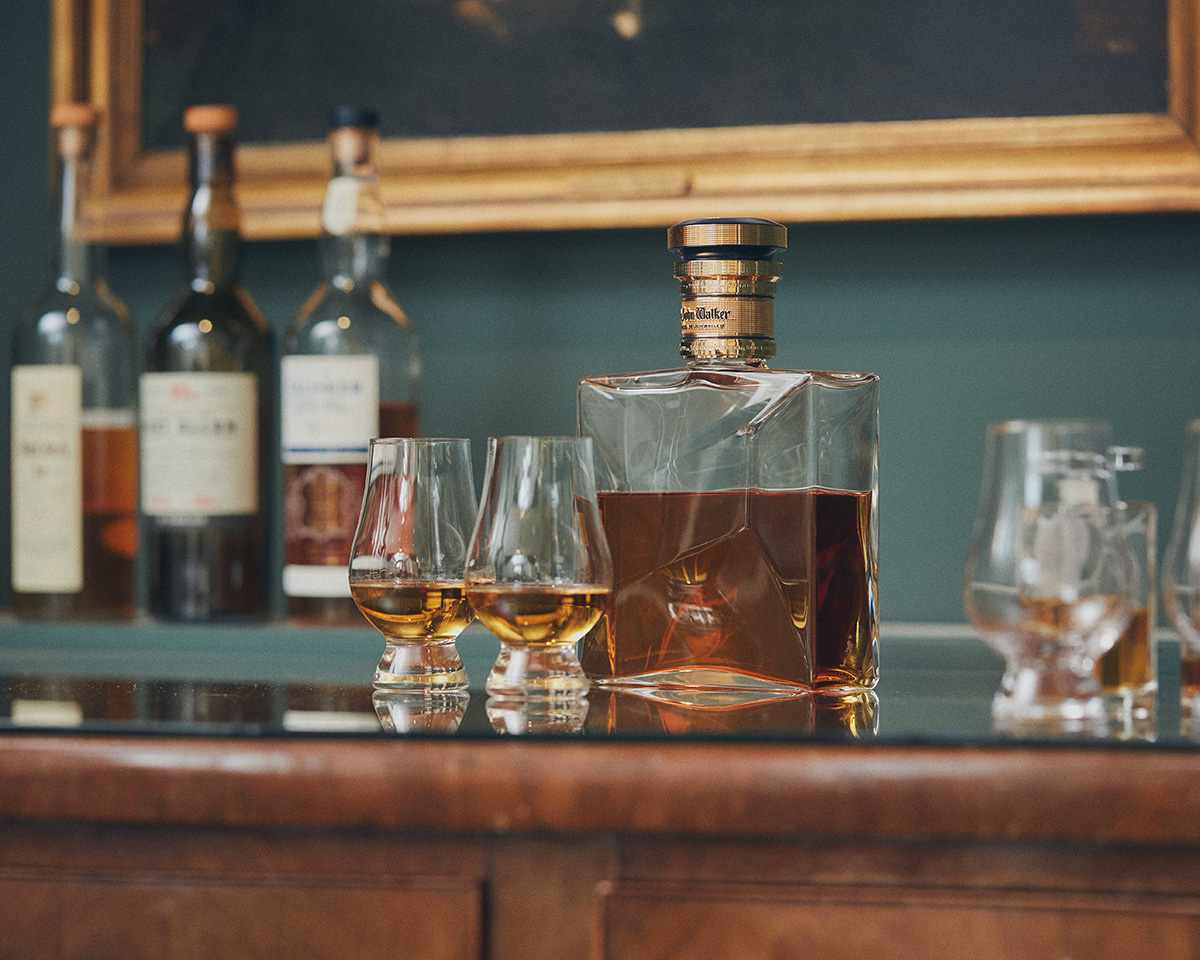
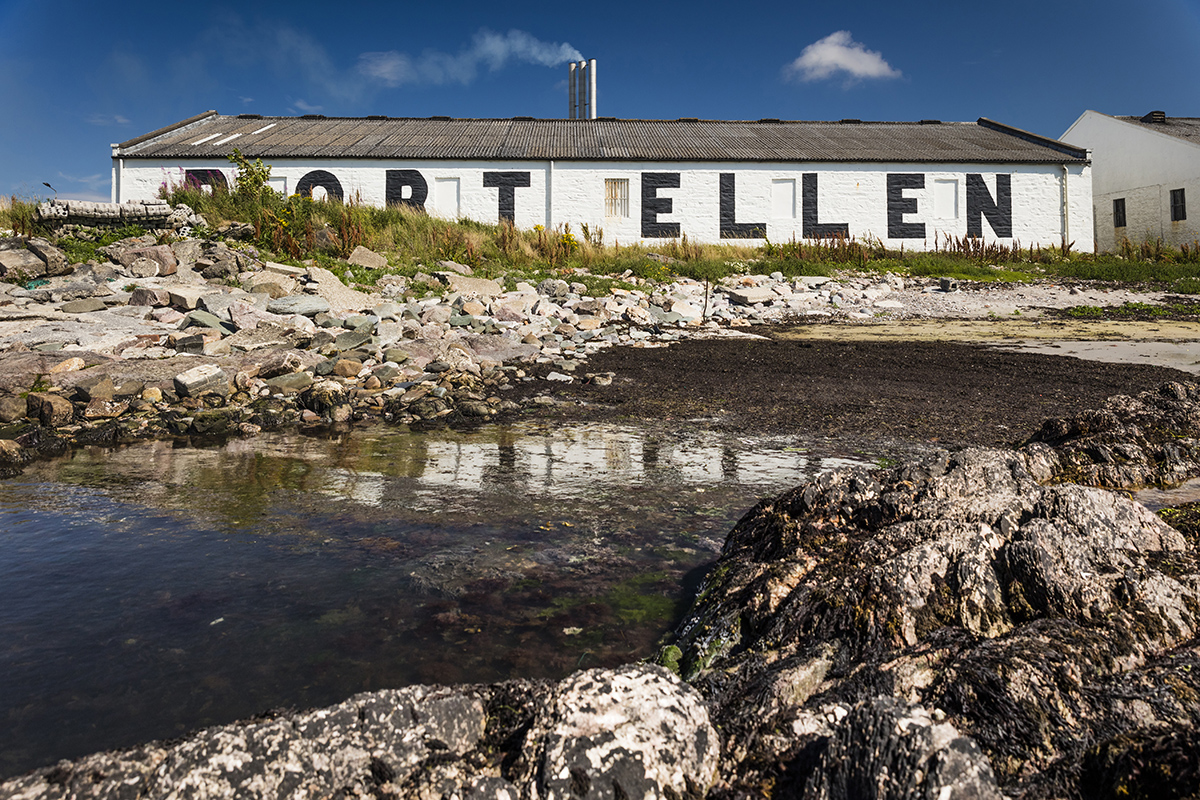
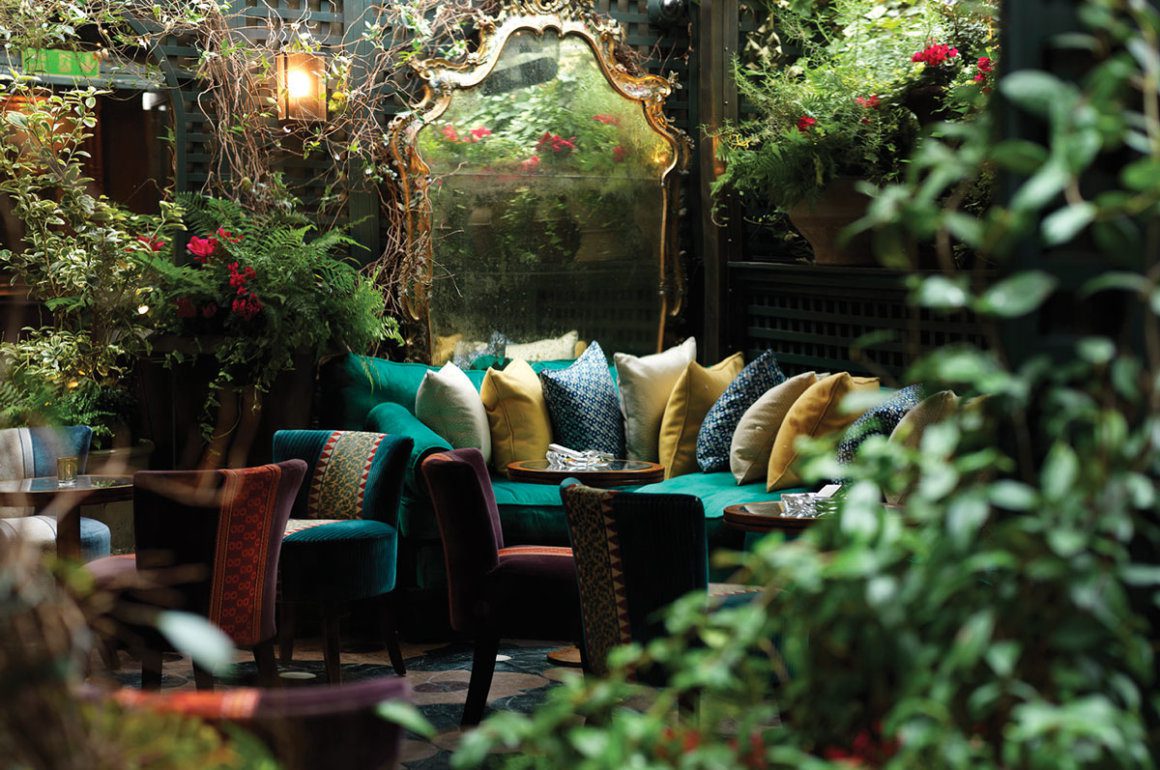
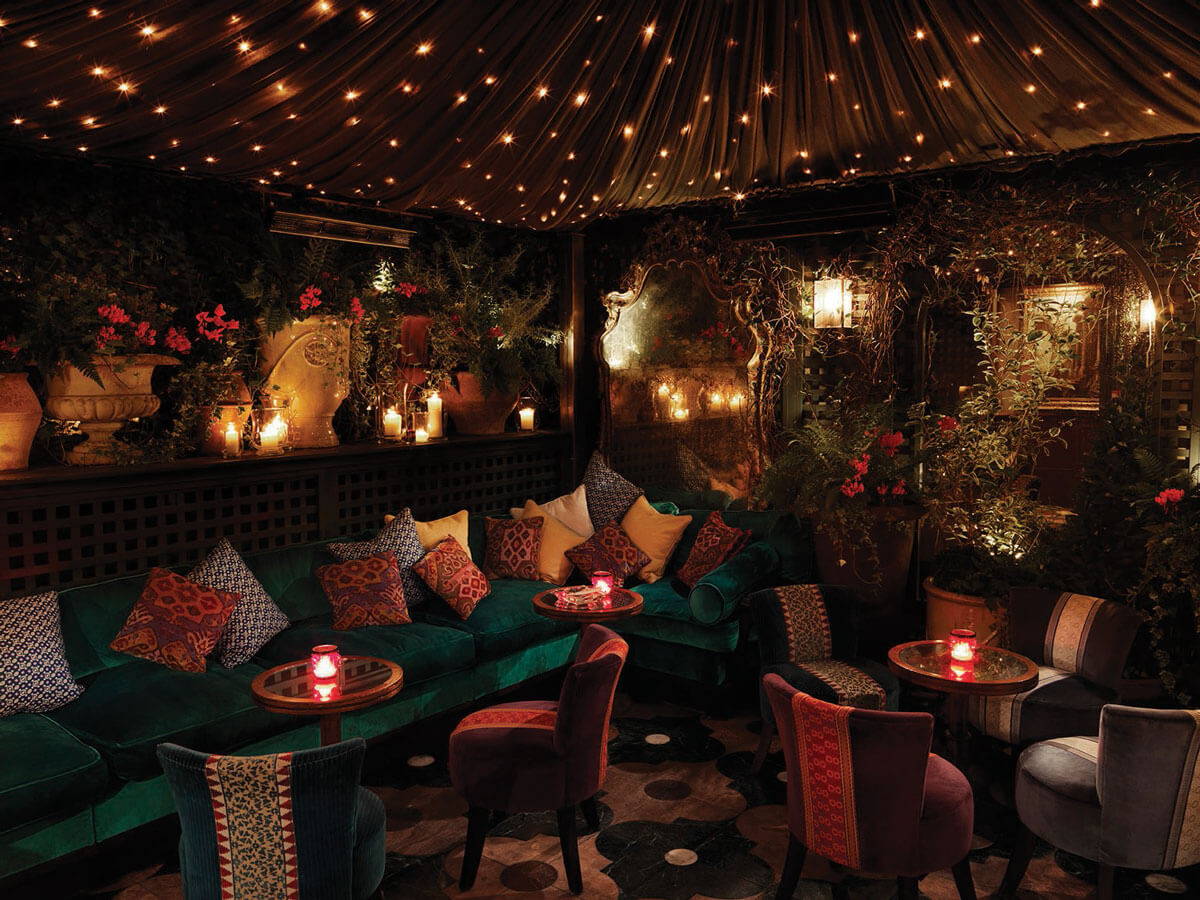








Recent Comments